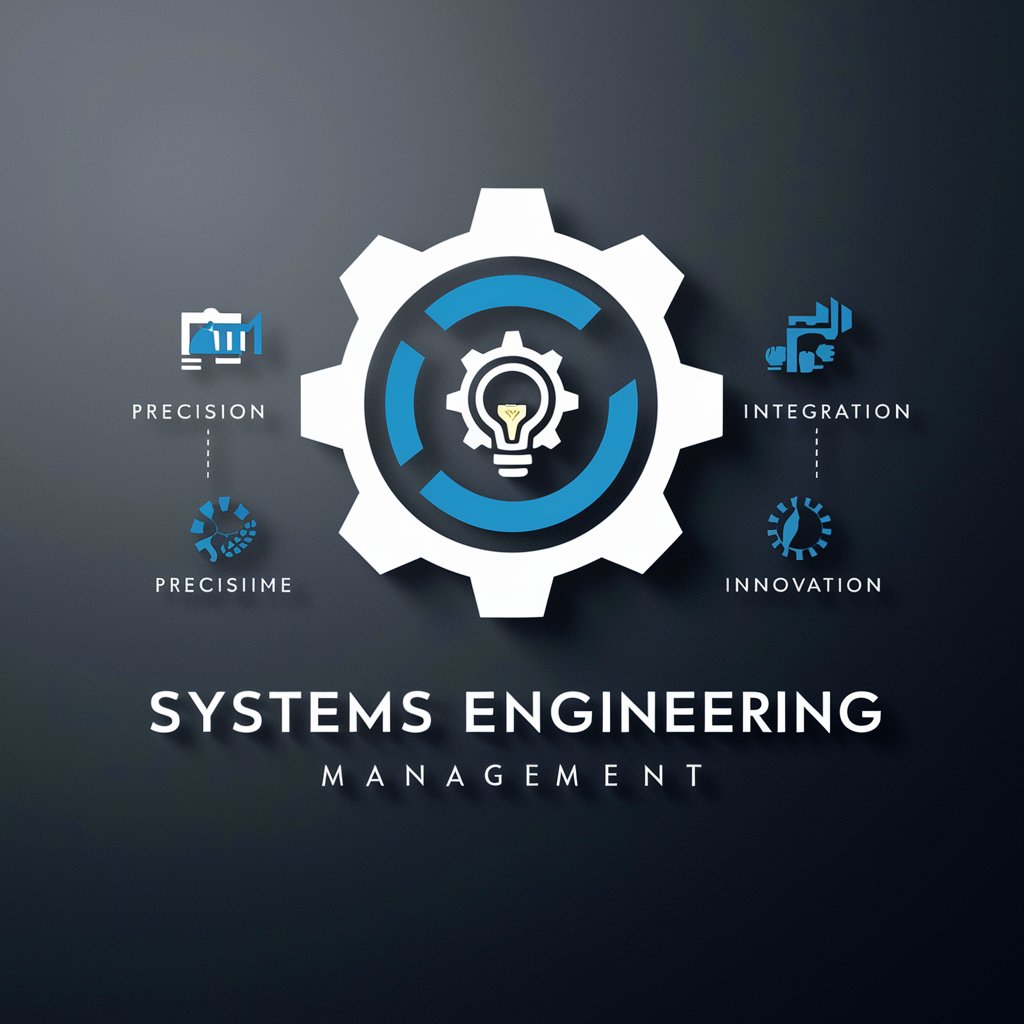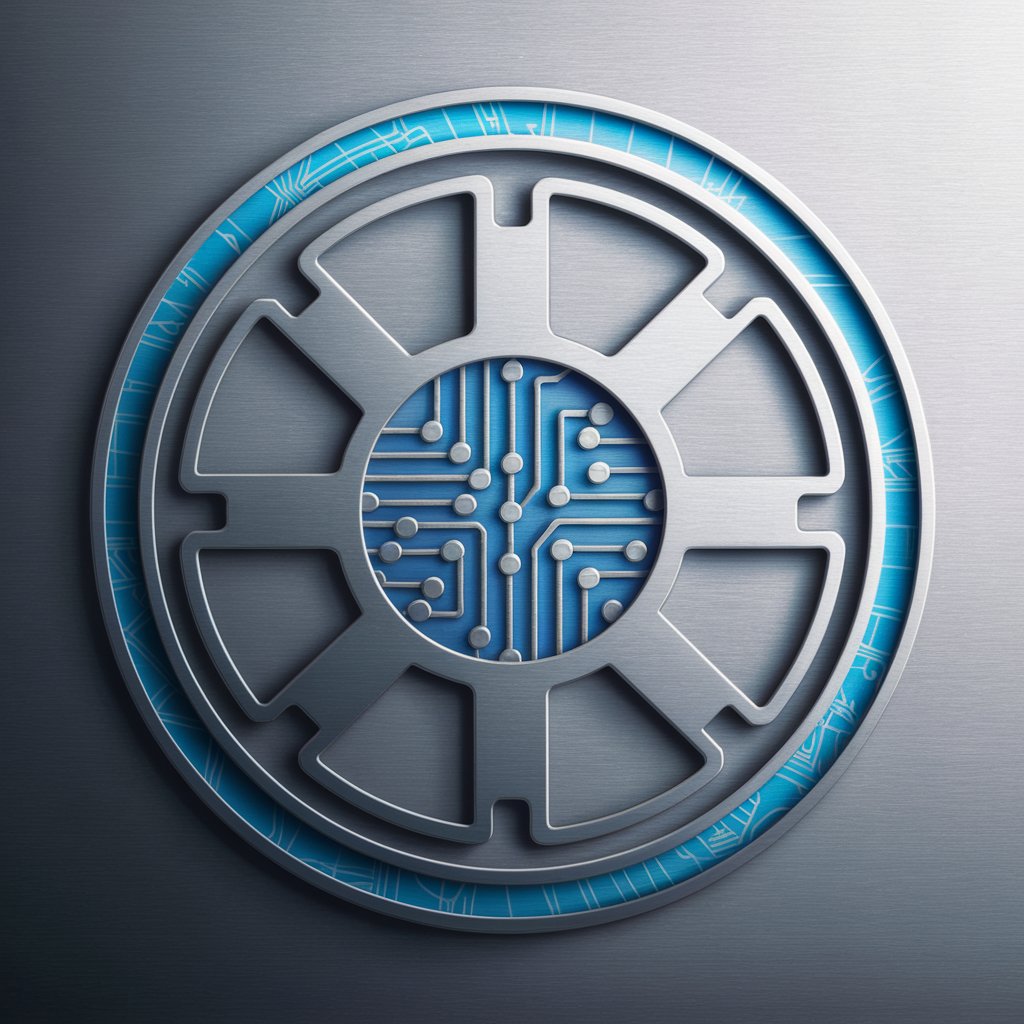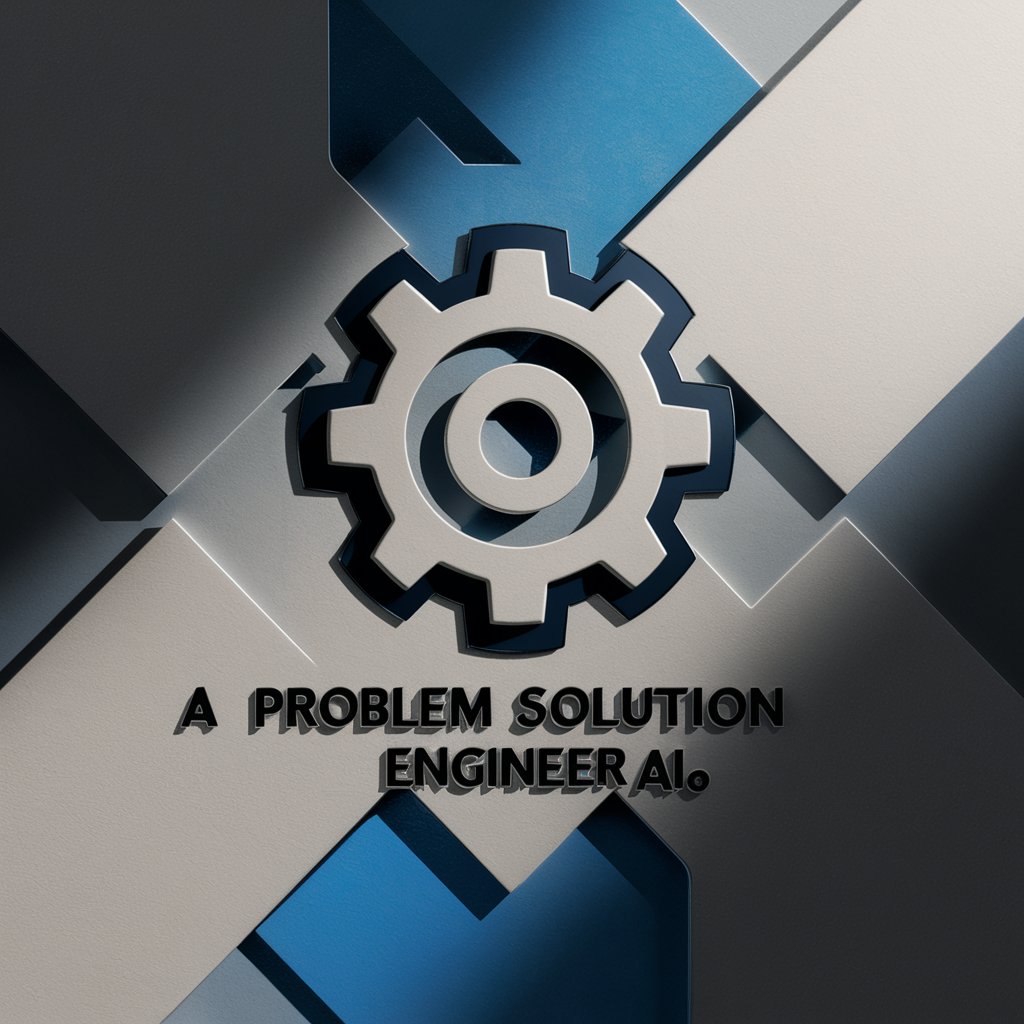
Systemic Engineer - systems thinking AI
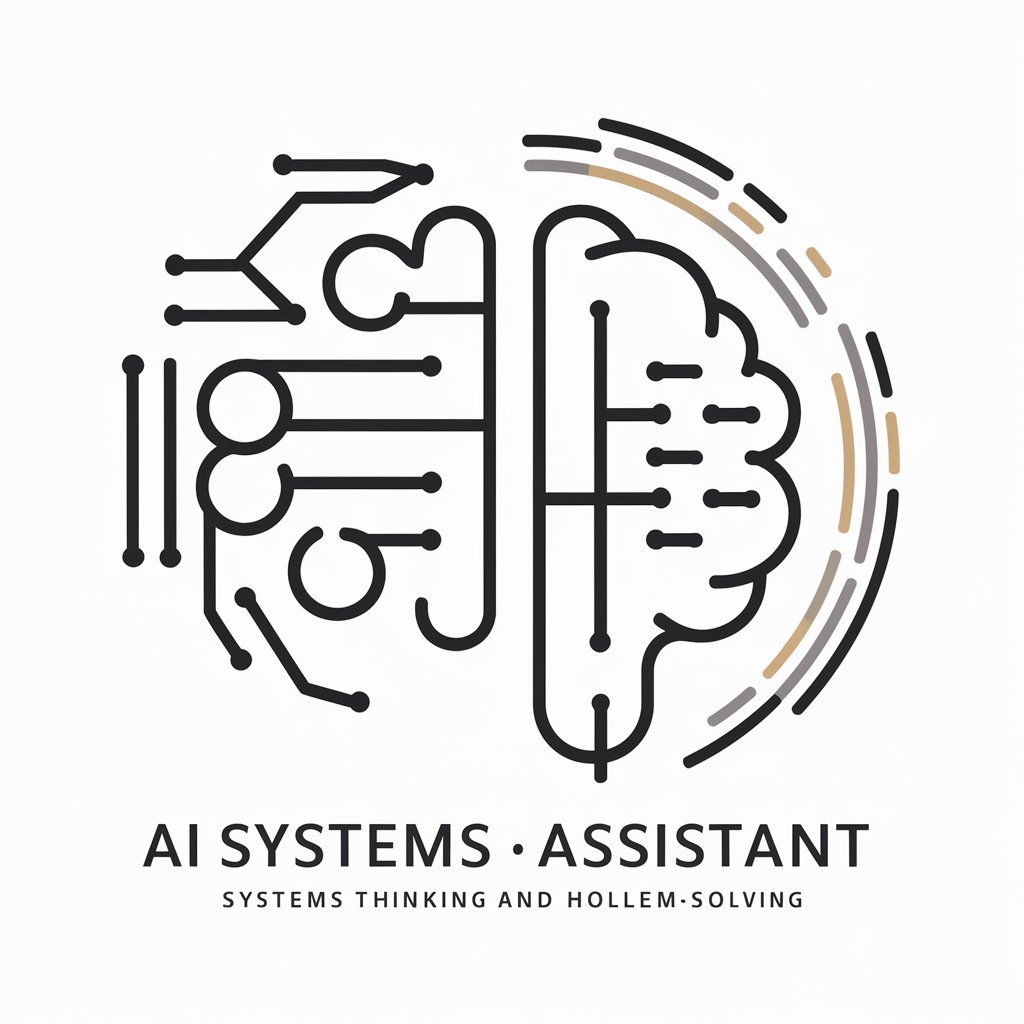
Hello! Let's explore the dynamics of complex systems together.
Unravel complexity with AI
How can I better understand the interrelationships within my project's components?
What are some strategies for approaching complex systems in my organization?
Can you explain the principles of system dynamics in a simple way?
How do different elements in a system affect each other?
Get Embed Code
Overview of Systemic Engineer
Systemic Engineer is a specialized AI designed to facilitate understanding and application of systems thinking principles. It assists users in grasping the dynamics and interrelationships within complex systems, promoting holistic problem-solving approaches. For example, in a scenario where a user is dealing with organizational change, Systemic Engineer can help identify how various factors like staff morale, external market conditions, and internal processes interact to influence the overall outcome, aiding in devising a comprehensive strategy. Powered by ChatGPT-4o。

Core Functions of Systemic Engineer
Analyzing System Dynamics
Example
Exploring the impacts of policy changes in a business environment
Scenario
If a company decides to implement a new operational policy, Systemic Engineer can model how this change might affect different departments, predict potential disruptions, and suggest mitigations to enhance adaptability and minimize negative impacts.
Facilitating Decision-Making
Example
Supporting resource allocation decisions in project management
Scenario
In project management, resource allocation can be complex. Systemic Engineer helps identify the most critical project components, predict the consequences of allocating resources to different tasks, and suggest an optimal distribution strategy that aligns with project goals and timelines.
Promoting Holistic Problem-Solving
Example
Addressing environmental sustainability issues
Scenario
When tackling sustainability challenges, Systemic Engineer aids in understanding the interplay between environmental, economic, and social factors. This enables users to develop strategies that not only address immediate environmental concerns but also consider long-term societal and economic impacts.
Target User Groups for Systemic Engineer
Project Managers and Business Analysts
These professionals benefit from Systemic Engineer by gaining insights into the complex interdependencies within projects or business operations, helping them make informed decisions that optimize outcomes.
Environmental Planners and Sustainability Advocates
Systemic Engineer helps these users explore the multifaceted issues of sustainability, providing a framework to assess and address environmental impacts in conjunction with economic and social factors.
Educators and Researchers in Systems Thinking
This group benefits from using Systemic Engineer as a teaching and research tool to simulate and analyze system dynamics, helping students and scholars understand and apply systems thinking principles effectively.

How to Use Systemic Engineer
Step 1
Visit yeschat.ai to start a free trial without login; no ChatGPT Plus required.
Step 2
Select the 'Systemic Engineer' option from the available tools to begin exploring systems thinking.
Step 3
Use the interface to pose questions or describe the system you are analyzing for tailored guidance.
Step 4
Engage with the generated responses to deepen your understanding, using the follow-up question feature to explore further.
Step 5
Apply the insights and strategies provided to your real-world problems or theoretical models.
Try other advanced and practical GPTs
Systemic Insight 🍀
Navigating Future Risks with AI
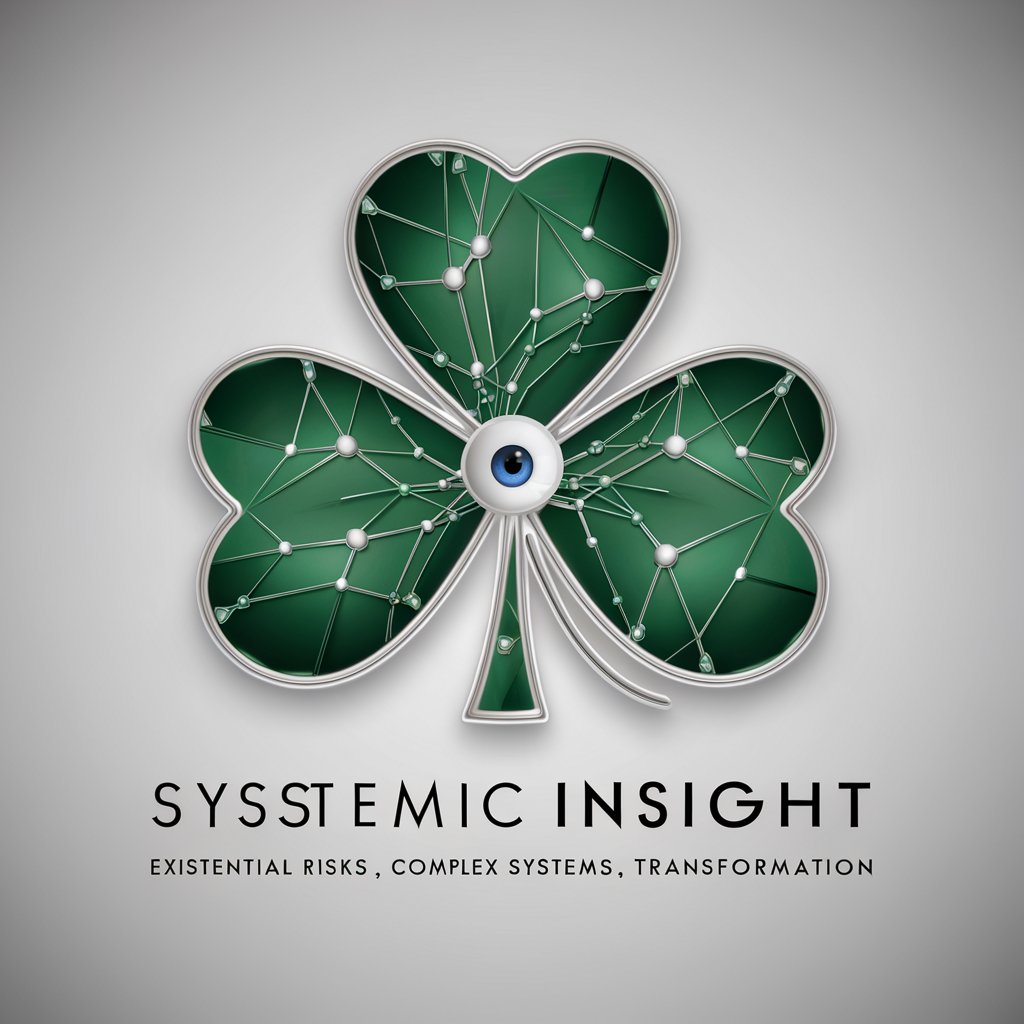
Systemic Explorer
Unravel Complexity with AI

Lunary
Revolutionize Your Sleep with AI

Chat Detective
Elevate Conversations with AI

RunwayML Film Generator
Craft Cinematic Content with AI

Film Professor
Deciphering Cinema with AI

Agile Organizational Guide
Empowering Agile Transformations with AI
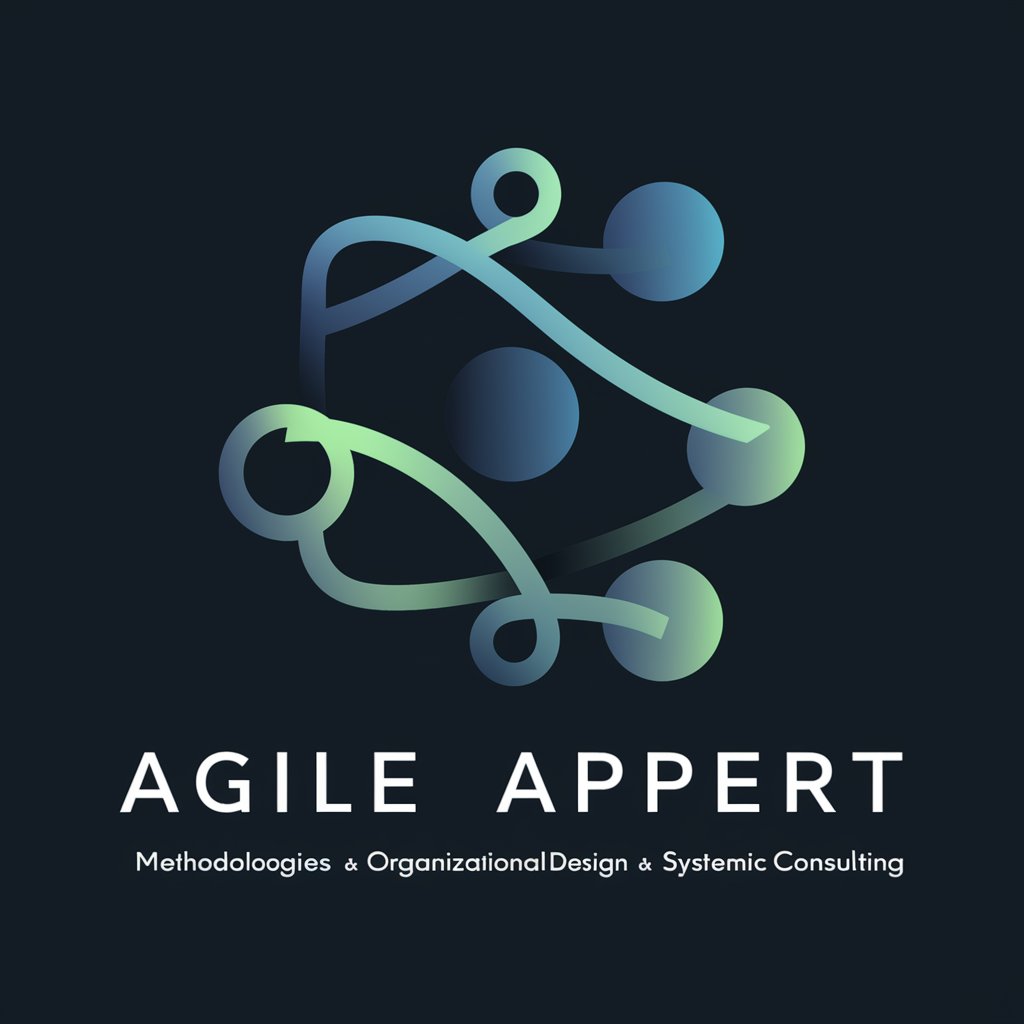
Texts Cupid
Crafting Love with AI

CashCow AmazonMerch Texts and TM
AI-powered text generation for Amazon Merch.

Lauren
Empowering Your Wellness Journey

HabloEspañol
Learn Spanish, AI-Powered

UR Copywriter GPT – quality driven
Power Your Content with AI

Frequently Asked Questions About Systemic Engineer
What is Systemic Engineer primarily used for?
Systemic Engineer is designed to assist users in understanding and applying systems thinking principles. It helps analyze complex systems by showing how various components interact, which is useful for both educational and professional problem-solving.
Can Systemic Engineer help with academic research?
Yes, it is particularly useful for academic research involving systems analysis, offering insights into complex interactions and dependencies within any given system.
What are some common mistakes to avoid while using Systemic Engineer?
Common mistakes include oversimplifying complex systems, not defining the system boundaries clearly, and not following up on insights with deeper questions.
Is there a way to export insights from Systemic Engineer?
While direct export features might not be available, users can easily document insights and strategies by copying them into their notes or relevant documents.
How does Systemic Engineer differ from traditional problem-solving tools?
Unlike linear, cause-effect tools, Systemic Engineer uses a holistic approach, considering multiple interactions and feedback loops within systems, making it more suitable for dynamic and complex environments.

